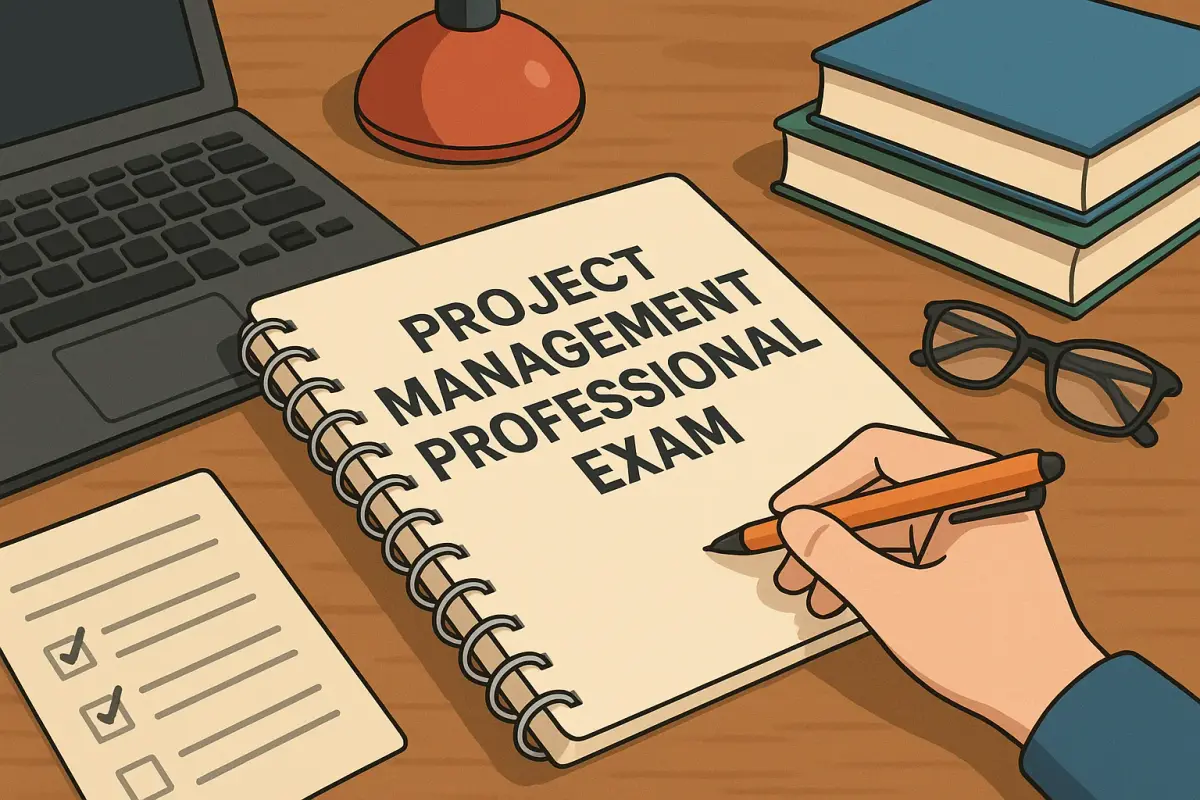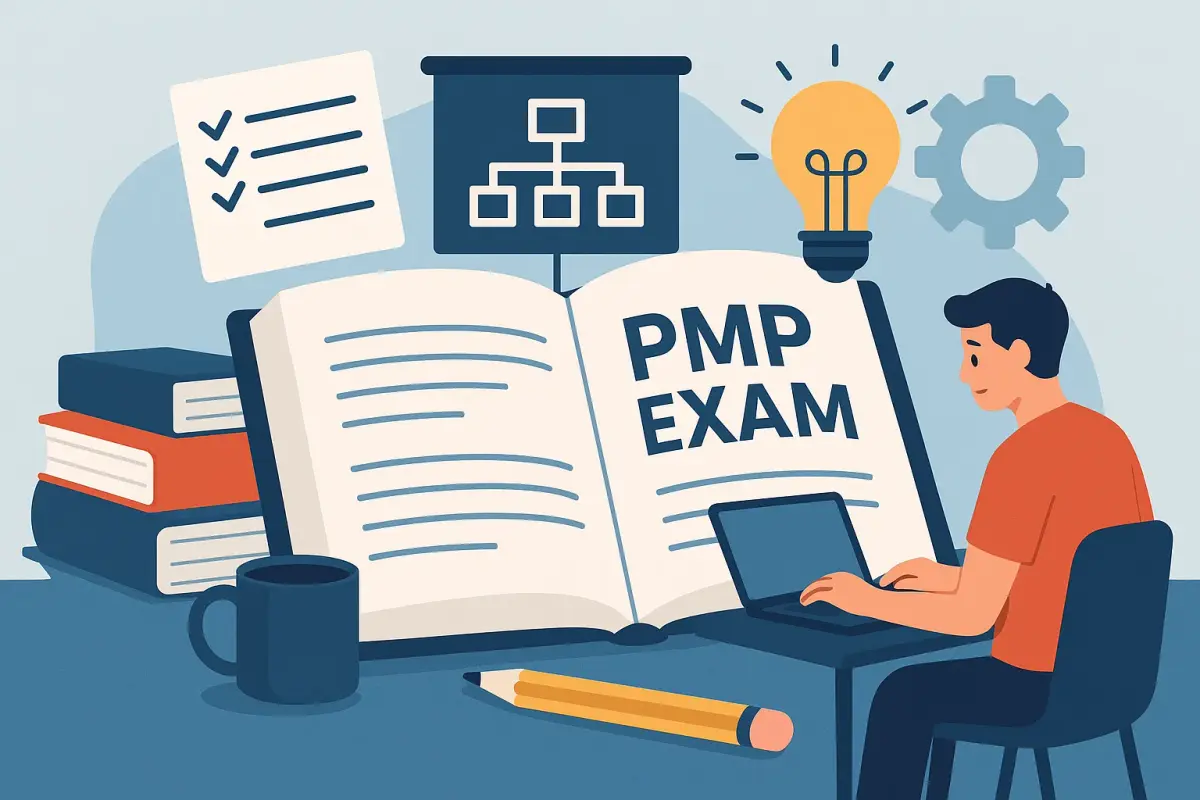In today’s competitive job market, earning a Project Management Professional (PMP) certification is a proven way to boost your career. Recognized worldwide, the PMP credential validates your ability to lead and manage projects efficiently.
However, passing the PMP exam is no easy task—it requires a solid understanding of project management principles, processes, and best practices.
That’s where a Project Management Professional exam preparation course comes in. Whether you're an experienced manager or new to the field, taking a structured preparation course can make a huge difference in how confident and ready you feel on exam day. In this blog, we’ll explore why these courses are so valuable, what they typically offer, and how to choose the right one for you.
The Value of PMP Certification

Before diving into course details, let’s talk about why PMP certification is worth pursuing.
-
Higher earning potential: PMP-certified professionals earn about 20% more on average than their non-certified peers.
-
Global recognition: The certification is accepted across industries and countries.
-
Career advancement: PMP certification can lead to promotions, leadership roles, and greater responsibility.
-
Skill validation: It proves you have the knowledge to manage projects effectively from start to finish.
But none of these benefits come without effort. The exam is tough—and that’s exactly why taking a Project Management Professional exam preparation course is a smart investment.
What Makes the PMP Exam So Challenging?
The PMP exam is designed to test real-world knowledge, not just textbook theory. It’s based on the PMBOK® Guide (Project Management Body of Knowledge) and includes questions related to:
Read Also: How Does the San Francisco Examiner differ from NYT?
-
Project initiation and planning
-
Execution and monitoring
-
Risk and resource management
-
Agile, hybrid, and predictive approaches
The exam consists of 180 multiple-choice questions to be completed in under four hours. It’s intense, which is why proper preparation is essential.
Why Take a Project Management Professional Exam Preparation Course?

Here are the key reasons to consider enrolling in a prep course:
1. Structured Learning
Instead of randomly flipping through study materials, a good prep course offers a structured path. You’ll cover every topic in a logical order, making it easier to retain information and understand how everything connects.
2. Expert Guidance
Certified instructors—many of whom have years of project management experience—can explain complex concepts in simple terms. They’ll also share tips, tricks, and real-world scenarios that help you grasp the material beyond the exam.
3. Practice Exams and Quizzes
These are a big part of any solid Project Management Professional exam preparation course. Timed quizzes and mock exams simulate the real test environment, so you can build both knowledge and test-taking stamina.
4. Access to Resources
Most courses include study guides, flashcards, process charts, video lectures, and downloadable tools. These materials support various learning styles and reinforce what you learn in class.
5. Accountability
A prep course gives you a clear timeline and scheduled classes or milestones. This structure helps you stay on track, especially if you're balancing study time with work and family.
What to Look For in a Good PMP Prep Course?
Not all courses are created equal. Here’s what to look for when choosing the right Project Management Professional exam preparation course for your needs:
Related Article: How Much Do Insurance Company Financial Examiners Make in Illinois?
-
PMI-approved provider: Make sure the course is offered by a PMI Registered Education Provider (REP) or an Authorized Training Partner (ATP).
-
Experienced instructors: Look for instructors with PMP certification and teaching experience.
-
Updated curriculum: Ensure the course reflects the latest exam changes, including agile and hybrid content.
-
Practice questions: A large bank of realistic practice questions and full-length mock exams is a must.
-
Flexible options: Some people prefer live classes, while others like to study at their own pace. Choose a format that suits your learning style.
Online vs. In-Person Courses
Online Courses
-
Pros: Flexible, self-paced, accessible from anywhere, often more affordable
-
Cons: Less interaction, requires self-discipline
In-Person Courses
-
Pros: Real-time interaction with instructors and peers, scheduled learning
-
Cons: Less flexible, potentially more expensive, location-bound
Many people now opt for blended learning, which offers both live virtual sessions and self-paced content.
How Long Does It Take to Prepare?
It depends on your background and availability, but most people spend 2–3 months preparing for the PMP exam. A typical Project Management Professional exam preparation course spans 4 to 8 weeks, followed by a few weeks of review and practice exams.
Real Success Stories
Many professionals say the prep course was the key to their success. For example:
“The course broke down complex topics into manageable lessons. The mock exams were so close to the real thing, I felt fully prepared.”
— Aisha M., Project Manager, Toronto
“I passed on my first try, and the course was worth every penny. The instructor’s real-world examples made the material stick.”
— Daniel K., IT Project Lead, San Diego
Cost and ROI
Most PMP prep courses cost between $500 and $2,000, depending on the format, duration, and included resources. While this may seem like a lot upfront, the return on investment is substantial. Certification can lead to better jobs, higher pay, and long-term career growth.
Final Thoughts
Passing the PMP exam is a major achievement, but you don’t have to go it alone. A high-quality Project Management Professional exam preparation course can give you the knowledge, confidence, and test-taking skills you need to succeed. If you're serious about advancing your project management career, now is the time to enroll, commit, and take that next step.

